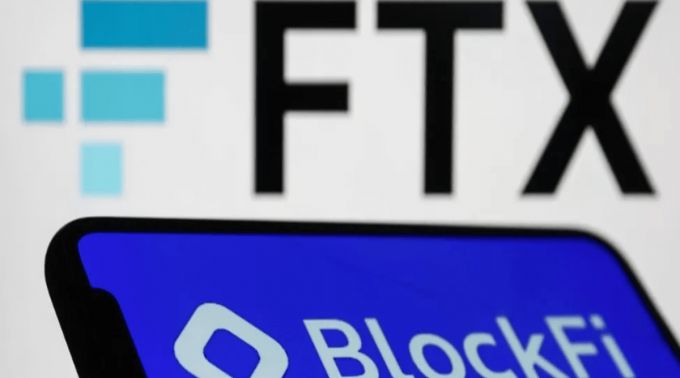
Report: BlockFi's Risky Investment in FTX and Alameda Despite Knowledge of Infamous Balance SheetReport: BlockFi's Risky Investment in FTX and Alameda Despite Knowledge of Infamous Balance Sheet According to a recently unsealed report made in Friday's court filing, BlockFi Inc. executives ignored repeated warnings from their risk management team regarding significant loans to Sam Bankman-Fried's Alameda Research, collateralized with digital tokens from FTX.The report, presented by a committee representing BlockFi's unsecured creditors, accuses the cryptocurrency lender of m...
According to a recently unsealed report made in Friday's court filing, BlockFi Inc. executives ignored repeated warnings from their risk management team regarding significant loans to Sam Bankman-Fried's Alameda Research, collateralized with digital tokens from FTX.
The report, presented by a committee representing BlockFi's unsecured creditors, accuses the cryptocurrency lender of misleading investors, taking shortcuts, and making substantial investments in FTX, despite having access to a secret balance sheet that exposed flaws in Bankman-Fried's empire.
The findings, made public recently, attribute the failure of BlockFi to missteps by CEO Zac Prince and other senior managers.
This revelation comes shortly after BlockFi's investigation, which claimed that Prince and other executives had little reason to be concerned about lending to Alameda before the platform faced allegations of fraud and collapsed.
BlockFi's Risky Alameda Lending: CEO Ignored Warnings, Accumulated $1.2 Billion Exposure
In a July 14 submission to the United States Bankruptcy Court for the District of New Jersey, the unsecured creditors' committee revealed that BlockFi's risk management team warned about the "high risks" of lending assets to Alameda.
Allegedly, CEO Zac Prince ignored the team's concerns when BlockFi lent Alameda $217 million by August 2021.
The team raised concerns about potential risks if the FTX Token (FTT) used as collateral for the loans had to be liquidated.
After January 2022, the risk management team ceased issuing memos to Prince regarding the potential risks of lending to Alameda, shifting discussions to "offline meetings and Slack."
During these interactions, the CEO occasionally acknowledged the exposure. By the time the firm declared bankruptcy, BlockFi had approximately $1.2 billion in assets tied to FTX and Alameda.
In a November 2 article, CoinDesk exposed that FTX's hedge fund arm, Alameda Research, had a significant portion of its balance sheet in its own FTT token.
This revelation severely impacted confidence in the exchange, leading FTX to file for Chapter 11 bankruptcy only nine days later.
Surprisingly, BlockFi, which collapsed a few weeks after FTX, seemed undeterred by FTX's toxic internal arrangements, according to claims by BlockFi creditors.
The creditors stated that BlockFi had access to the same balance sheet revealed in the court before it placed any cryptocurrency on the FTX/Alameda platform in the second half of 2022.
This includes an investment of nearly $900 million re-lent to Alameda between July and September 2022, which is now deemed potentially irretrievable.
"BlockFi recalled its loans from Alameda [in June 2022], and Alameda repaid its outstanding balance to almost zero," said the report. "BlockFi then could have walked away from the relationship. Instead, it re-lent Alameda nearly $900 million (between July and September 2022), almost exclusively collateralized by FTT."
BlockFi Challenges Committee's Report, Citing July 10 Filing
BlockFi disagreed with the committee's report in an emailed statement, referring to its July 10 filing.
BlockFi said their management needed to understand the risks of misusing client funds or engaging in transactions.
BlockFi's filing states that the Released Parties were unaware of the true nature of FTX and Alameda, and the legal claims do not justify prosecution from a cost-benefit perspective.
A BlockFi spokesperson stated that the company disagreed with the report.
In a separate court filing, BlockFi alleged that the committee responsible for the report cherry-picked statements out of context made errors on other matters, and failed to provide the promised objective analysis.




